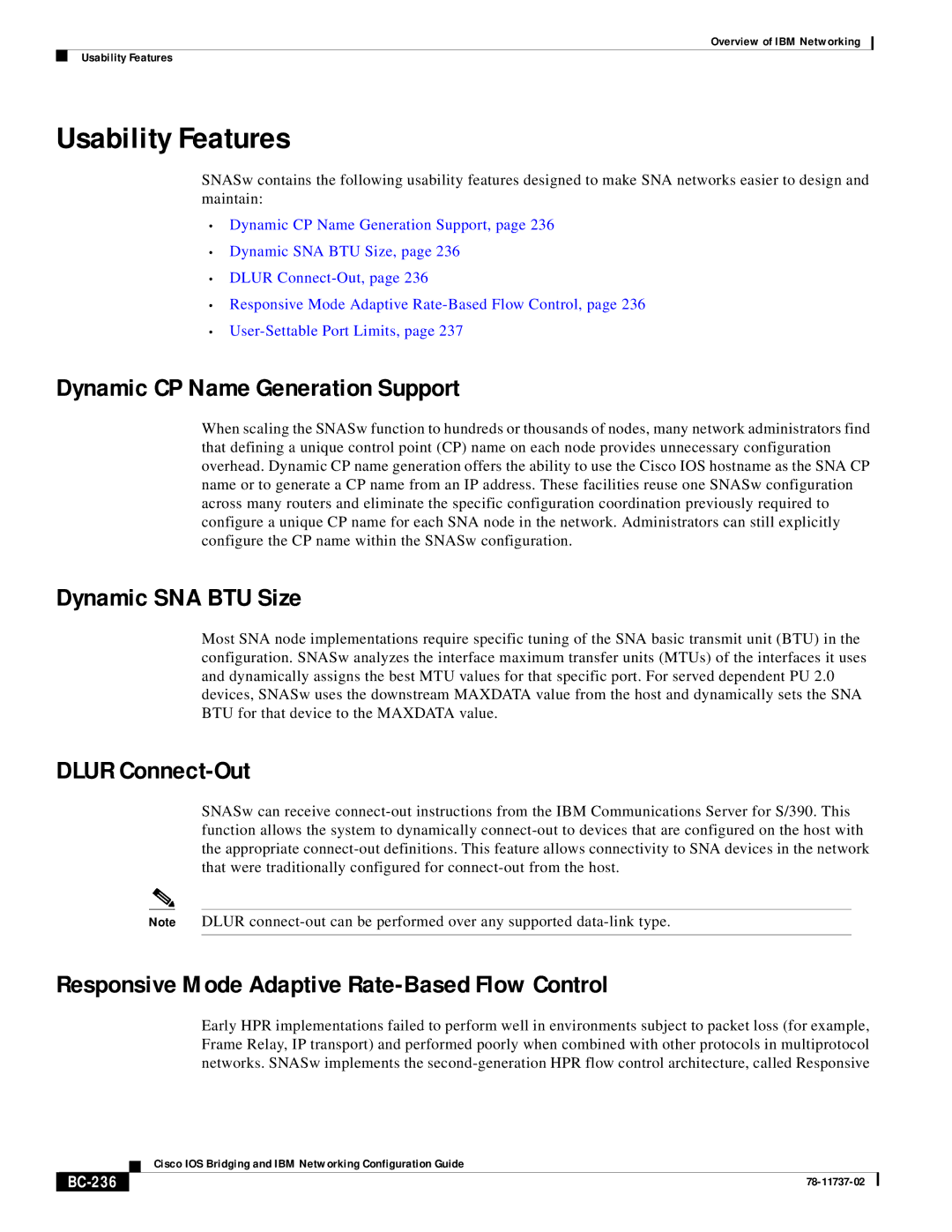
Overview of IBM Networking
Usability Features
Usability Features
SNASw contains the following usability features designed to make SNA networks easier to design and maintain:
•Dynamic CP Name Generation Support, page 236
•Dynamic SNA BTU Size, page 236
•DLUR
•Responsive Mode Adaptive
•
Dynamic CP Name Generation Support
When scaling the SNASw function to hundreds or thousands of nodes, many network administrators find that defining a unique control point (CP) name on each node provides unnecessary configuration overhead. Dynamic CP name generation offers the ability to use the Cisco IOS hostname as the SNA CP name or to generate a CP name from an IP address. These facilities reuse one SNASw configuration across many routers and eliminate the specific configuration coordination previously required to configure a unique CP name for each SNA node in the network. Administrators can still explicitly configure the CP name within the SNASw configuration.
Dynamic SNA BTU Size
Most SNA node implementations require specific tuning of the SNA basic transmit unit (BTU) in the configuration. SNASw analyzes the interface maximum transfer units (MTUs) of the interfaces it uses and dynamically assigns the best MTU values for that specific port. For served dependent PU 2.0 devices, SNASw uses the downstream MAXDATA value from the host and dynamically sets the SNA BTU for that device to the MAXDATA value.
DLUR Connect-Out
SNASw can receive
Note DLUR
Responsive Mode Adaptive Rate-Based Flow Control
Early HPR implementations failed to perform well in environments subject to packet loss (for example, Frame Relay, IP transport) and performed poorly when combined with other protocols in multiprotocol networks. SNASw implements the
| Cisco IOS Bridging and IBM Networking Configuration Guide |
|
